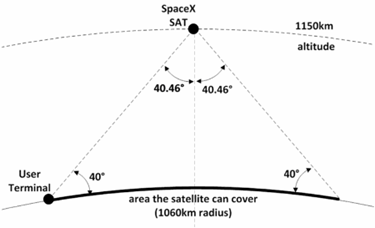SpaceX Betting Big On Satellite Broadband Internet
By Jof Enriquez,
Follow me on Twitter @jofenriq

Space Exploration Technologies Corp., better known as SpaceX, expects future revenue from its planned satellite broadband internet business will be significantly larger than its rocket launch business by 2020.
The American aerospace transport services company projects that its planned satellite internet business will have over 40 million subscribers and bring in more than $30 billion in revenue by 2025, according to documents obtained by the Wall Street Journal. By that year, the rocket launch business will only generate about $5 billion, or around 15 percent of the company's total revenue. The satellite business will become more profitable than the launch business as early as 2020, according to SpaceX.
Using a $1 billion combined investment from Alphabet Inc. and Fidelity Investments, placed in 2015, SpaceX plans to launch the fleet of over 4,000 communications satellites — about 70 times the size of any current communications array. The first phase will reportedly go online by 2018.
"With deployment of the first 800 satellites, SpaceX will be able to provide widespread U.S. and international coverage for broadband services," SpaceX wrote in a filing with the U.S. Federal Communications Commission (FCC) last year. "Once fully optimized through the Final Deployment, the system will be able to provide high bandwidth (up to 1 Gbps per user), low latency broadband services for consumers and businesses in the U.S. and globally."
SpaceX's low-earth orbiting satellite network is expected to reduce latency — a problem that causes delays in transmission of Internet data packets between Earth and satellites — by using the latest phased array technology to dynamically steer a large pool of beams to focus capacity where it is needed.
A SpaceX Falcon 9 space rocket exploded shortly after liftoff in 2015, which cost the company $260 million, reports WSJ. SpaceX suffered another setback when its signature launch rocket it exploded during a static fire test in September.
Four months later, the company has rebounded from past losses and numerous delays, culminating in the successful launch of the Falcon 9 rocket on Saturday, which carried 10 commercial satellites into orbit to start revitalizing Iridium Communications Inc.’s aging satellite constellation, according to Market Watch. SpaceX plans to ramp up launches in coming years.
“We have more than 70 future launches on our manifest representing over $10 billion in contracts,” said SpaceX Chief Financial Officer Bret Johnson. “The company is in a financially strong position and is well positioned for future growth,” he said, adding that SpaceX has over $1 billion of cash and no debt, reports WSJ.
